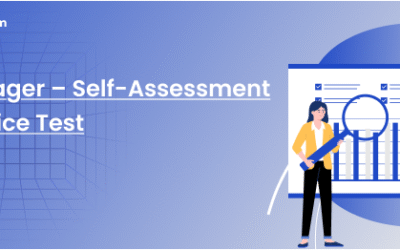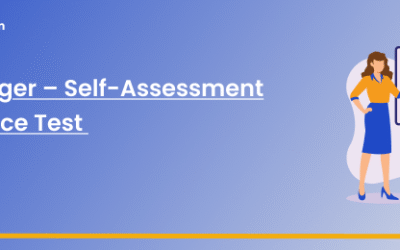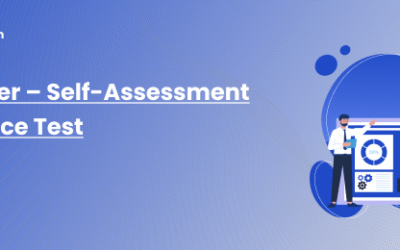What is Event Management
Welcome to the exciting world of event management! Have you ever wondered how those magical concerts, glamorous award shows, and high-profile corporate events come to life? Well, it all starts with a team of dedicated event managers who work tirelessly behind the scenes to ensure that every detail is flawlessly executed.
Event management is a dynamic and multifaceted industry that encompasses everything from planning and organising to executing and evaluating events of all scales. Whether it’s a wedding, conference, product launch, or charity gala, skilled event managers are responsible for coordinating logistics, managing budgets, liaising with vendors, and ensuring that each event runs smoothly from start to finish.
In today’s fast-paced world, where experiences hold immense value, the demand for skilled event managers is at an all-time high. As businesses and individuals seek to create memorable moments that leave a lasting impact, the role of the event manager becomes increasingly vital.
In this article, we will delve into the fascinating world of event management, exploring its various aspects, skills required, and the steps involved in planning a successful event. So, grab a cup of coffee and join us as we uncover the secrets behind creating unforgettable experiences.
Importance of Event Management
The significance of event management cannot be overstated. It is the bedrock upon which memorable and effective events are built. Professional event management ensures that every aspect of an event is meticulously planned and delivered, providing a seamless experience for both the hosts and the attendees.
A well-managed event reflects positively on the brand or individual behind it, enhancing their reputation and potentially leading to future business opportunities. It is the meticulous attention to detail that can make an event stand out, leaving a lasting impression long after the final guest has departed.
Furthermore, event management is crucial for the successful execution of the event’s objectives, whether they are to celebrate, educate, promote, or raise funds. By effectively managing an event, the organisers can ensure that the intended message is conveyed clearly and that the event’s goals are achieved.
Types of Events
The world of event management is incredibly diverse, covering a wide array of events. These can range from personal and social occasions to corporate and public events. Each type of event presents its own set of challenges and requirements, making the role of an event manager both dynamic and exciting.
Personal events include weddings, birthday parties, and anniversaries, where the focus is on creating a unique and memorable experience for the individual. Corporate events such as conferences, product launches, and trade shows, on the other hand, are geared towards achieving business goals like brand promotion, networking, or team building.
Public events, including festivals, concerts, and sporting events, aim to entertain and engage large audiences. Charity events and galas, meanwhile, focus on raising awareness and funds for a cause. The versatility required to manage such a broad spectrum of events is part of what makes event management both challenging and rewarding.
Event Management Process
The event management process is a comprehensive journey that takes you from the initial concept to the final applause. It begins with defining the event’s purpose and objectives, which serve as the foundation for all subsequent planning and decision-making.
Once the goals are set, the next step involves meticulous planning, which includes budgeting, selecting a venue, arranging vendors, and crafting a timeline for the event. This stage is critical as it lays out the roadmap for turning the event concept into reality.
The execution phase is where plans are put into action. This is the most visible part of the process, where the event manager’s skills in coordination, communication, and problem-solving are truly put to the test. Ensuring that each element of the event comes together seamlessly is the hallmark of a successful event manager.
Key Skills Required for Event Management
Event management is a field that demands a diverse set of skills. Foremost among these is organisational prowess. An event manager must keep track of countless details and coordinate various elements to ensure nothing is overlooked.
Strong communication skills are also essential. An event manager must effectively communicate with clients, vendors, and team members to ensure everyone is aligned with the event’s vision and objectives. They must also be adept negotiators, securing the best deals and managing contracts.
Creative problem-solving is another vital skill. Events rarely go exactly as planned, and the ability to swiftly address and rectify unforeseen issues is what distinguishes a competent event manager. Additionally, they must be able to work under pressure and manage their time efficiently to meet tight deadlines.
Event Management Tools and Software
In the digital age, a plethora of tools and software are available to assist event managers in their roles. These technologies provide solutions for every aspect of event management, from planning to execution to post-event analysis.
Project management software such as Trello or Asana helps keep track of tasks and deadlines, ensuring that every member of the team knows what needs to be done and when. Meanwhile, event registration platforms like Eventbrite streamline the sign-up process for attendees.
For layout and design, tools like SketchUp and AllSeated assist in creating floor plans and visualising event spaces. And for post-event engagement, software such as SurveyMonkey allows for the collection of feedback to assess the event’s success and identify areas for improvement.
Event Management Tips and Best Practices
Seasoned event managers know that success lies in the details. A key tip is to always have a detailed checklist and timeline, which can act as a guide throughout the planning and execution phases. This ensures that no task is forgotten and helps keep the event on track.
Another best practice is to establish clear communication channels with all stakeholders. Regular updates and meetings can prevent misunderstandings and ensure everyone is working towards the same goals. It’s also crucial to have a contingency plan in place for potential issues that may arise.
One should never underestimate the power of networking. Building strong relationships with vendors and other event professionals can lead to better deals and a more reliable support system when organising events.
Event Management Challenges and How to Overcome Them
Event management is not without its hurdles. One of the biggest challenges is managing client expectations. To navigate this, clear and consistent communication is key, as well as managing expectations from the outset with realistic projections and transparent discussions.
Budget constraints can also pose difficulties. Event managers must be creative in finding ways to deliver a high-impact event without exceeding financial limits. This often involves negotiating with suppliers and finding cost-effective alternatives.
Furthermore, the unpredictable nature of events means that crisis management skills are crucial. Whether it’s a last-minute venue change or a no-show speaker, being able to think on your feet and come up with quick solutions is vital.
Event Management Careers and Opportunities
The event management industry offers a wealth of career opportunities for those with a passion for creating exceptional experiences. From starting your own event management company to specialising in a particular type of event, the possibilities are vast.
Opportunities also exist within larger organisations, such as corporations, non-profits, and event venues, which often have in-house event teams. Additionally, the rise of virtual and hybrid events has opened up new avenues for event professionals to explore.
Continuous learning and professional development are crucial in this ever-evolving field. By staying abreast of the latest trends and technologies, those in event management can maintain their edge and continue to deliver outstanding events.
Conclusion
Event management is a complex yet rewarding field that plays a pivotal role in bringing to life events that captivate and inspire. Through careful planning, precise coordination, and a touch of creativity, event managers have the power to transform visions into tangible, unforgettable experiences.
As we’ve explored the multifaceted nature of event management, it’s clear that the industry is not just about logistics and organisation; it’s about creating moments that resonate and have a profound impact on those who experience them.
Whether you’re an aspiring event manager or simply intrigued by the behind-the-scenes magic of events, the world of event management is one of endless possibilities and constant excitement. It’s where passion meets practicality, and where every detail contributes to a larger tapestry of memorable moments.




